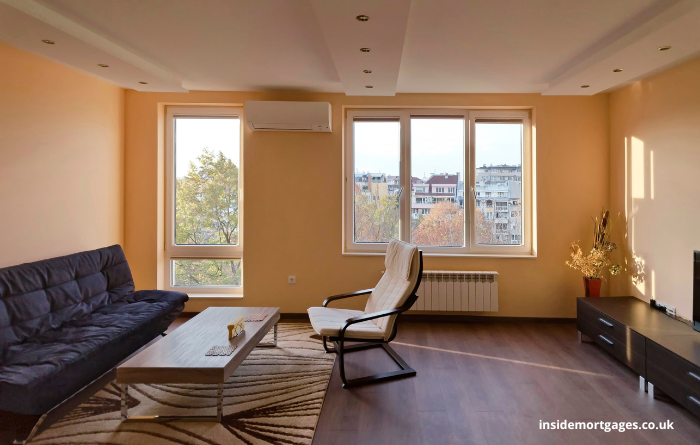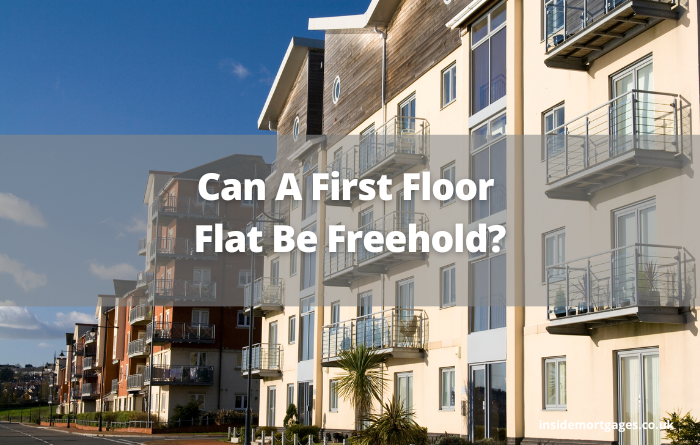Can A First Floor Flat Be Freehold? The Definitive Answer.
Can a first floor flat be freehold? Yes, a first floor flat can be freehold but it is rare, as in most cases, first floor flats will be purchased on either a leasehold or commonhold basis. There are some instances in which a flat can be owned as freehold though but this is generally only the case when the entire building is owned by a single entity, such as a company or an individual.
Flat owners can take steps to collectively purchase the freehold rights to their block if they have purchased a leasehold flat within it. This can only be done if over half of the leaseholders in the block agree and can work together with a solicitor and surveyor to complete the transaction.
If you’re unsure about the tenure of your flat, it’s always best to check with your solicitor or conveyancer.
Buying A Flat
Homeownership is a complicated and often confusing topic, especially when it comes to flats. A flat is a type of apartment that is found on one level of a building where the building comprises two or more individual homes. Flats are often smaller in size than houses and in the UK, there are three different ways you can own a flat, known as tenure. The types of tenure for flats are; leasehold, commonhold, and freehold. Of these, freehold flat owners are the most desirable position to be in, as it gives the owner full control over the property.
Benefits Of Owning A Freehold Flat
Whilst it’s less common to own a freehold flat, there are several benefits to owning a flat on this basis over a leasehold flat. For one, you won’t have to pay ground rent or service charges to the landlord. Additionally, you’ll have more control over the property, including the ability to make changes and renovations without needing permission.
Finally, if you ever decide to sell, you’ll be able to keep all of the proceeds from the sale rather than having to split it with the landlord, which can be the case for some leaseholders. While there are some advantages to leasing a flat, owning a freehold flat gives you far more independence and flexibility.
Leasehold Vs Freehold Vs Commonhold

As above, there are three main types of ownership when it comes to flats: leasehold, freehold, and commonhold. Each has its advantages and disadvantages, so it’s important to understand the difference before making a purchase.
Freehold Flat Ownership
Freehold ownership gives the owner of a property exclusive rights to the land on which that property is built. This means that the owner does not have to pay rent or provide any other forms of compensation to a landlord, and also has the right to pass on ownership of the property to another person.
Leasehold Flat Ownership
Leasehold ownership means that you can live in the property and can use the land that it’s on for a set period, typically covered by a lease of 99 or 999 years. During this time you will have to pay annual ground rent to the freeholder, and once the lease expires, the property reverts back to them as the owner.
Leasehold flats are usually managed by a managing agent who acts on behalf of the freeholder. They will take care of maintaining the property and will collect the ground rent and service charge payments from you to pass on to the freeholder every year. The amount of ground rent can vary depending on the type of flat and its location, but it is usually a token amount. Service charges however can rise to thousands of pounds a year depending on the quality of, and cost of maintaining the shared facilities in your building.
Commonhold Flat Ownership
Commonhold flat ownership is a type of ownership that gives each leaseholder an undivided share in the commonhold association, which owns and manages the building and communal areas. It is the most equitable form of flat ownership as each owner has an equal say in how the property is managed. One of the key benefits of commonhold ownership is that it gives leases greater security as they cannot be terminated by the landlord. Additionally, Commonholds provide greater flexibility for owners who wish to make alterations to their flats or sell them, as there is no need to obtain permission from the landlord.
Freehold Flat Cost
Property prices are big news, but sadly there is no single answer when it comes to wanting to know about freehold prices for flats. This is because the price will vary depending on many factors, such as the location of the property, the size of the flat, and the current market conditions.
The condition of the property and the level of amenities available also affect the cost. In general, a ground floor flat and flats on the lower floors are less expensive than those on the upper floors, and flats in converted houses are typically more affordable than those in purpose-built blocks.
The cost may also be affected by whether the buyer is purchasing the whole building or just a single unit. Ultimately, the best way to determine how much a freehold flat will cost is to consult with an estate agent in your area or look at property selling websites like Rightmove to get an idea of what you will need to pay. In general, though, freehold flats tend to be more expensive than leasehold properties, so buyers should be prepared to pay a premium for this type of property.
Changing Your Leasehold To Freehold
If you have purchased or are thinking about purchasing a leasehold flat but want to own the freehold to gain more control over your property, one way to do this is to purchase the freehold in partnership with other leaseholders in your building.
The process of purchasing the freehold is called leasehold enfranchisement and it can’t be done by one leaseholder. By law, at least half of the leaseholders in the building must come together to make the purchase.
This can be a difficult task, as it requires everyone to be on the same page and to have a good working relationship with their neighbours. It can be well worth the effort though, as it can provide significant benefits in terms of cost savings and increased control over the property that you live in.
Once you jointly own the freehold, you can collectively set ground rents, shop around for the best insurance, have the right to manage the property and common areas, as well as set the rules for how the building is used.
Summary
If you’ve ever wondered ‘can a first floor flat be freehold’, then you should now know that:
- whilst a first floor flat can be freehold, it rarely is
- flats are most commonly purchased on a leasehold basis but commonhold purchases are getting more popular, and freehold purchases are possible.
- if buying a leasehold flat, you can go on to purchase the freehold of the building if over half of the leaseholders in the block agree to collective enfranchisement
For the reasons outlined in the article above, freehold ownership is often considered more desirable than leasehold ownership when it comes to buying flats, but freehold flats are rare.
If you’re interested in purchasing a first floor flat, then you should always double-check with the seller if it’s freehold or leasehold property that you’re buying. Knowing this information will ensure you’re aware of your liabilities when it comes to maintaining, repairing, and insuring the property, and can weigh up the pros and cons before deciding on whether to the property.

